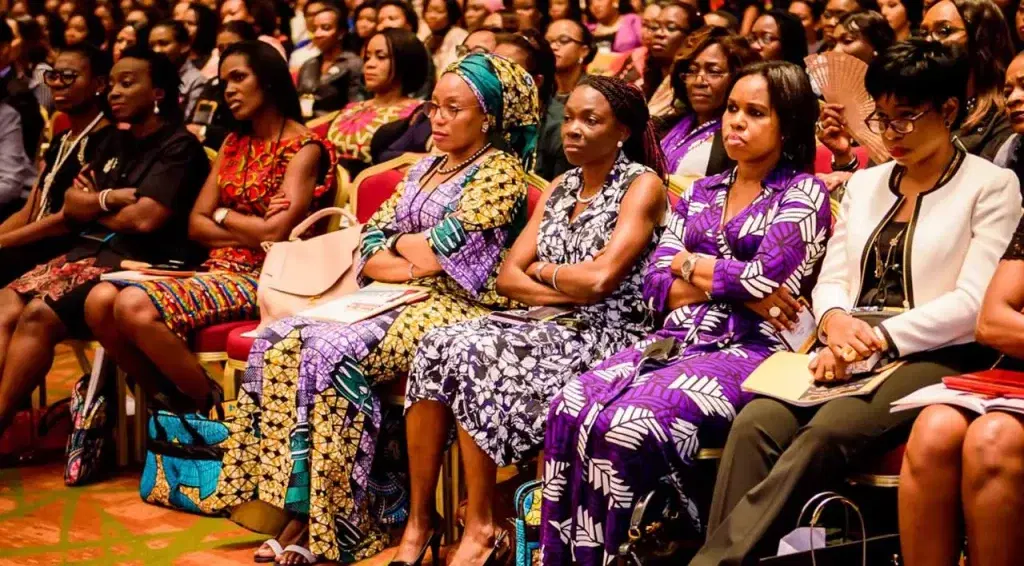
By Ugochukwu Alaribe
A Non-Governmental Organization, Proactive Gender Initiatives, PDI, with Support from Neinrich Boll Stiftung, has decried the declining level of women’s participation and representation in politics in Abia State.
The group, which made the observation following a report of research it unveiled in Umuahia, lamented that Abia state had lost its ranking as the state with the highest number of female legislators in the country between the 2011 and 2015 cycle,as women occupied 5 seats out of the 24 in the state.
It stated that the situation in Abia state has deteriorated with zero women representation in the State House of Assembly.
Launching the research titled “Women political participation and representation in local and state elections: the impact of women’s non-participation in Abia state” in Umuahia, the group disclosed that Abia women had set the pace in terms of political participation compared to the situation in some states in Northern Nigeria.
Speaking at the event, Programmes Manager Heinrich Boll Stiftung, Abuja, Ere Amachree, stated that following the misrepresentation of women in politics, the research became pertinent to understand the changing patterns of representation of women in Abia state politics, in particular, and Nigeria at large.
She said, “The research is aimed at assessing women’s political participation and representation and determining the impact of women’s participation and non-participation in Abia state politics. Abia state had the highest number of female legislators in the country between the 2011 and 2015 cycles, as women occupied five seats out of the 24 in the state. However, the situation in Abia state has deteriorated, with zero representation in the state House of Assembly.
“Since women have been underrepresented at the State House of Assembly in recent times, it has become important to examine the performance of female candidates in local and state elections to understand their challenges and barriers to women’s political empowerment.
“It is believed that after the launch today, key decision makers will begin to pay attention to the dwindling political fortunes of women in the state in particular and the country in general, with the aim of reversing this worrisome trend.”
Presenting details of the research, Barr. Orji Stephen, director of programs for the Proactive Gender Initiative (PGI), disclosed that the data gathered after the study revealed that many factors are responsible for the decline in political participation among women. Stephen stressed that the gap has continued to widen because these factors have not been addressed.
He identified some of the findings of the research to include stigmatization against women, aggression by men, lack of financial muscle by women, cultural practices, negative orientation, absence of State policy that supports women to participate in politics and win elections, traditional inhibitions, lack of mentors, sexual abuse against women, among others.
Stephen also added that during the research, women interviewed from the three senatorial districts of Abia State advocated that government at all levels should ensure that the 35 % women affirmative action adheres to encourage them to participate more in politics.
On her part, a Commissioner in the Abia State Independent Electoral Commission, ABSIEC, Mrs. Bertha Ehumadu, decried that Nigerian women have not been given the necessary support by their male counterparts to run for elective positions.
She also decried the lack of support from husbands of women who are willing to contest during elections, stressing that women in politics are called names as prostitutes, while erroneous impressions the society has about women are also problems to the women and their quest to win elections.
Ehumadu also noted the need for state policies to ensure that women occupy elective positions, stressing that laws should support the 35 per cent women affirmative action.
She commended Governor Alex Otti for involving more women in his administration.
She said, “Women are willing to win elections, but there has always been the issue of the absence of support from their male counterparts. This factor is a serious problem. What about the violence that heralds our politics? During the last election, I was nearly killed, but thank God I escaped. There has to be proper harmonization both from the perspective of the law and society.”
Other women who spoke at the event, including the Majority Leader of the Ukwa West Legislative Council, Hon. Ulunma Dominica, tasked women with shunning timidity, resisting intimidation and standing with their male counterparts to vie for positions.
Other respondents also urged women to put more effort into supporting their fellow women to vie for positions.
For his part, Dr Ibe Samuel commended the researchers for identifying issues leading to the decline in women’s political participation, stressing that the research offers practical steps that can aid women in participating in politics and occupying elective positions at the local, State and federal levels.
Most of the participants who spoke at the launch stated that intimidation, financial incapacitation, cultural practices and violence have combined to frustrate women’s participation in Nigeria’s electoral process.
The participants also called for the enactment of laws to boost women’s participation in politics, stressing that without laws, it would be difficult for women to participate in, win elections and contribute their quota to national development.
The post Group decries declining women participation in politics in Abia appeared first on Vanguard News.








